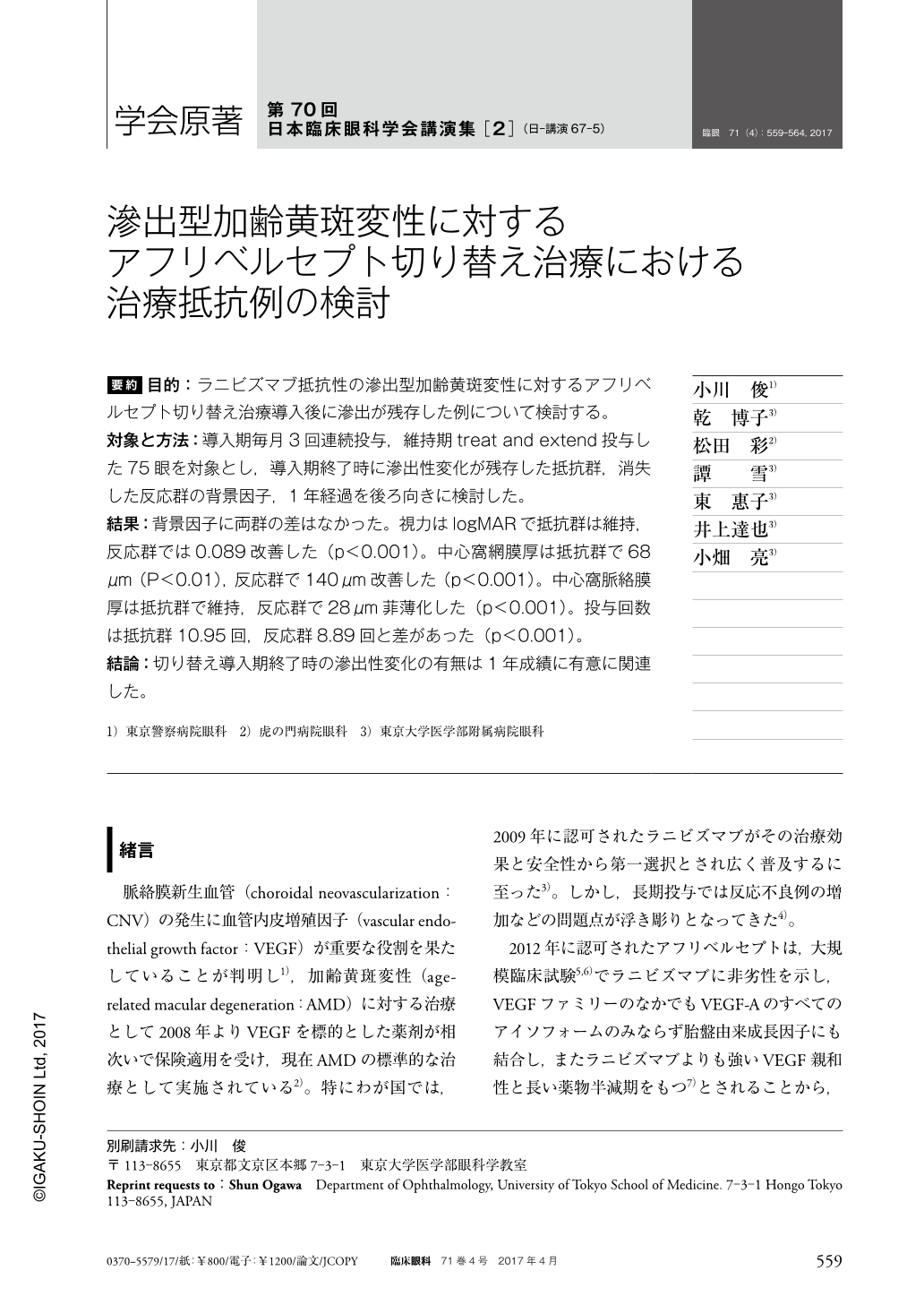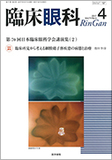Japanese
English
- 有料閲覧
- Abstract 文献概要
- 1ページ目 Look Inside
- 参考文献 Reference
要約 目的:ラニビズマブ抵抗性の滲出型加齢黄斑変性に対するアフリベルセプト切り替え治療導入後に滲出が残存した例について検討する。
対象と方法:導入期毎月3回連続投与,維持期treat and extend投与した75眼を対象とし,導入期終了時に滲出性変化が残存した抵抗群,消失した反応群の背景因子,1年経過を後ろ向きに検討した。
結果:背景因子に両群の差はなかった。視力はlogMARで抵抗群は維持,反応群では0.089改善した(p<0.001)。中心窩網膜厚は抵抗群で68μm(P<0.01),反応群で140μm改善した(p<0.001)。中心窩脈絡膜厚は抵抗群で維持,反応群で28μm菲薄化した(p<0.001)。投与回数は抵抗群10.95回,反応群8.89回と差があった(p<0.001)。
結論:切り替え導入期終了時の滲出性変化の有無は1年成績に有意に関連した。
Abstract Purpose: To evaluate the effect of retinal fluid status at month 3 on visual and anatomic outcomes during the one-year follow-up period in patients with neovascular age-related macular degeneration, which were recalcitrant with intravitreal ranibizumab treatment.
Subjects and Methods: Post-hoc analysis including 75 eyes received three initial monthly intravitreal aflibercept injections as introduction phase and subsequently received treat and extend treatment. We defined the recalcitrant group which had fluid at month 3, and the sensitive group which had no fluid. We analyzed the background and visual or anatomic outcome during the one-year follow-up period.
Results: The background was similar between the two groups. Best-corrected logMAR visual acuity, central retinal thickness, and subfoveal choroidal thickness from baseline improved at month 12 in the total cohort. Compared to the recalcitrant group, the sensitive group showed better improvement at each time point. The patients in the recalcitrant group tended to receive more injections.
Conclusions: Conversion to IVA was effective in patients with AMD resistant to ranibizumab. Fluid status at month 3 may predict visual or anatomic outcome, and the number of injections during the one-year follow-up period.

Copyright © 2017, Igaku-Shoin Ltd. All rights reserved.


